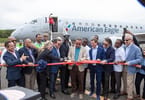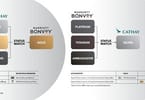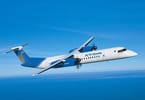Alaska Airlines, Boeing and airports in the Pacific Northwest have teamed up in an effort to move towards the development and use of biofuel aviation fuels in the region.
The partnership, which involves airports in Portland, Seattle and Spokane, will work with Washington State University to examine how the area might develop renewable jet fuel capabilities.
The first regional assessment of its kind in the United States, it will look at all phases of developing a biofuel industry, from biomass production and harvest to refining, distribution and use by airlines.
The project is to analyze potential biomass sources indigenous to the Pacific Northwest, including algae, oilseeds like Camelina, wood byproducts and others.
Funded by the participants, the assessment is expected to be completed in about six months.
FOOTPRINT
The participants believe biomass sources could allow airlines to save “millions of tons” of greenhouse gas emissions.
Air travel currently accounts for about 2% of man-made carbon emissions.
Alaska Air Group Chairman and CEO Bill Ayer said: “Through this initiative, we are joining other key stakeholders in our region to explore the development of alternatives to jet fuel that could further reduce our carbon footprint.”
Northwest-based environmental nonprofit Climate Solutions will manage the assessment project, aligning it with the international Roundtable on Sustainable Biofuels.
ACTIONS
The ultimate aim is to come up with routes and actions to make aviation biofuel commercially available to airline operators in the region.
Boeing, which has its manufacturing base in Seattle, said the development of a sustainable fuel for aircraft was now “top priority”.
Boeing Commercial Airplanes CEO Jim Albaugh said: “Developing a sustainable aviation fuel supply now is a top priority both to ensure continued economic growth and prosperity at regional levels and to support the broader aim of achieving carbon-neutral growth across the industry by 2020.”
An initial kickoff meeting for the project was planned for this month, with expectations of future meetings to include input from biomass producers, refiners, airport operators, green groups, airlines and academics.
John Gardner, Washington State University vice president of economic development and global engagement said: “It’s critical that understanding and policy keep pace with the science and technology as we shape this next era of biofuels that we are convinced will be sustainable.”






















